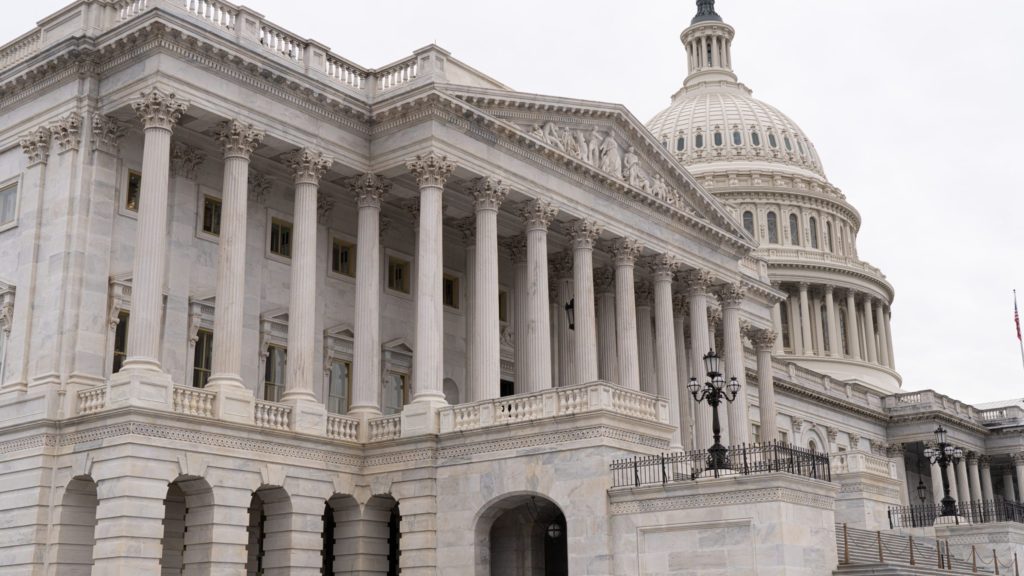New D.C. Laws Face Congressional Disapproval Today
By • February 6, 2023 0 1260

Two new D.C. laws, passed by the Council of the District of Columbia last year, are facing a joint Congressional committee hearing today in a little-used process known as “a resolution of disapproval.” If the hearings and subsequent votes in both the House and the Senate support the disapproval, D.C. legislators could be forced to rescind the laws under the D.C. Home Rule Act of 1973.
The Local Resident Voting Rights Amendment Act of 2022 would allow anyone including non-citizen residents (including those here illegally) to vote for mayor, Council members, board of education, advisory neighborhood commissions and the attorney general if they had lived in the District for 30 days or more. The law passed without Mayor Muriel Bowser’s signature. The Washington Post and The Georgetowner wrote editorials in opposition – especially to the 30-day provision and including persons on temporary time-limited non-immigrant visas and those unauthorized to be in the country.
The Revised Criminal Code Act of 2022 would rewrite D.C.’s 122-year-old criminal code, the revision seeks to modernize criminal justice in the District by redefining offenses, adjusting penalties and codifying new crimes that the framers of the original rules didn’t — or couldn’t — envision. In many cases, the new code introduces tiered sets of “penalty enhancements” that increase the possible sentence for violent or destructive crimes, such as use of a weapon and property damage.
“I’ve been very public about where I stand on that,” Metropolitan Police Chief Robert Contee has said many times. “Anytime we’re talking about lowering penalties for violent offenders who commit crimes in our city, that’s a non-starter for me. Yes, I agree that the criminal code needs to be reformed … [but] the damage that’s done to people, the trauma that victims get exposed to, I don’t think that’s given enough weight through my lens.”
Mayor Bowser has expressed similar concerns about the new law.
Rep. James Comer (R-Ky.), chairman of the House Oversight and Accountability Committee that oversees the District, has called the new D.C. criminal code “a pro-criminal bill.”
The joint hearing — meaning both House and Senate members take part — at 5 p.m., today, will consider three resolutions of disapproval: H.R. 185 — To terminate the requirement imposed by the Director of the Centers for Disease Control and Prevention for proof of COVID-19 vaccination for foreign travelers, and for other purposes; H.J. Res. 24 — Disapproving the action of the District of Columbia Council in approving the Local Resident Voting Rights Amendment Act of 2022; and H.J. Res. 26 — Disapproving the action of the District of Columbia Council in approving the Revised Criminal Code Act of 2022.
Passage of a joint resolution is by simple majority vote. Should a joint resolution of approval or disapproval pass the House and Senate but be vetoed by the president, any attempt to override that veto would take place under normal House and Senate procedures, according to the Congressional Research Office.
The CRO writes, “It bears further mention that the Home Rule Act disapproval procedure is one expedited parliamentary method that Congress might use to invalidate a proposed District law. It is not, however, the only way Congress might undertake such disapproval. In fact, although Congress has successfully used the special parliamentary disapproval mechanisms of the Home Rule Act on three occasions since passage of the act in the early 1970s, it has far more frequently over this period influenced actions of the District of Columbia through the regular lawmaking process, including the appropriations process.”
On Feb. 5, a letter — signed by all D.C. Council members and Mayor Bowser — was sent to House and Senate leaders and read in part: “We ask you to stand up against any attempts to undermine the autonomy Congress has granted the District and instead stand up for the democratic rights of District residents. Thus, we urge you to reject H.J. Res. 26 and H.J. Res. 24.”
The Georgetowner will cover the joint hearing.

